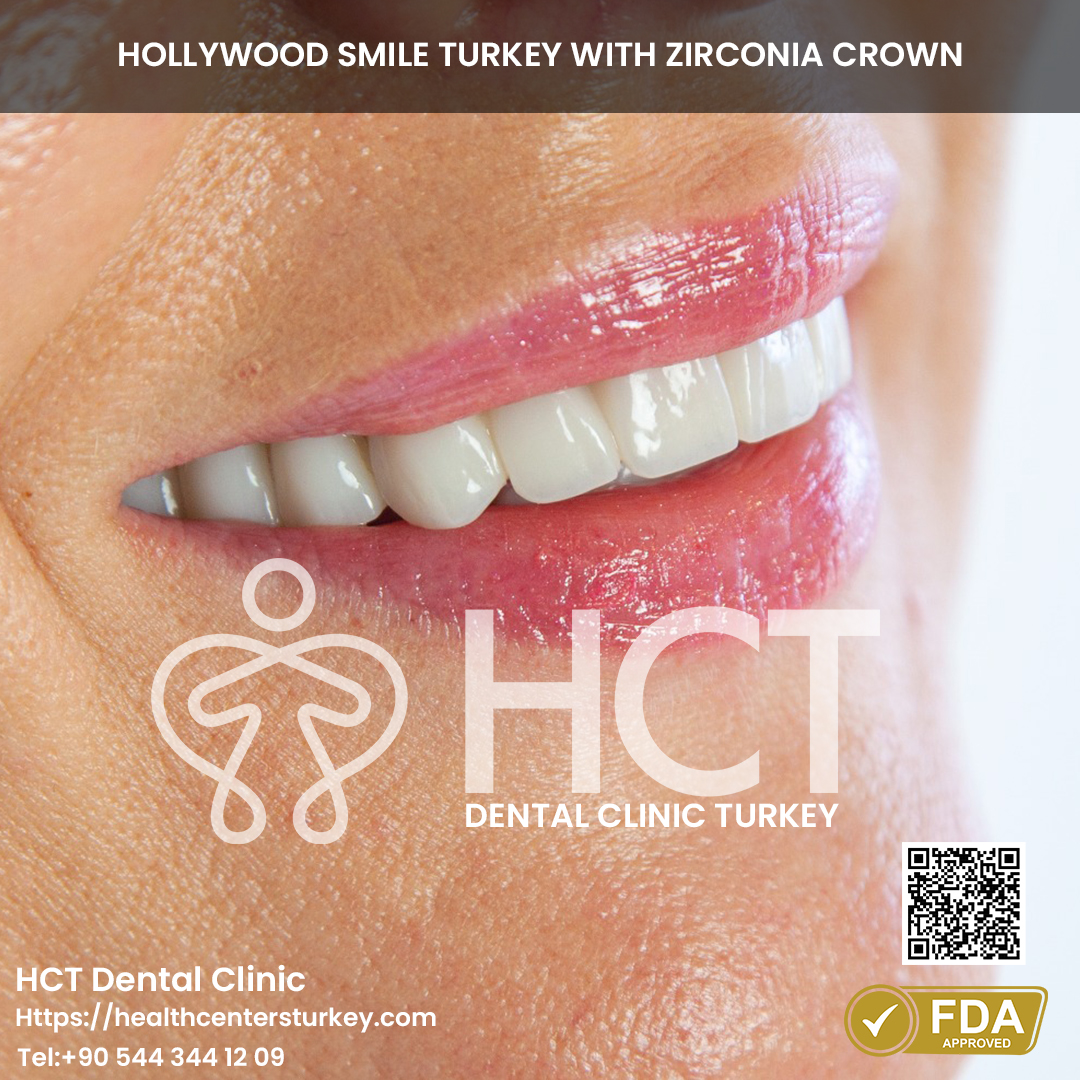Discover Affordable Dental Care Options in Crowns and More in Turkey
Dental implants have become a well-liked solution for these looking to replace missing teeth. Understanding how these implants can have an result on adjacent teeth is important for anyone contemplating this procedure, in addition to for dentists and specialists involved in dental care.

One significant side is that dental implants are designed to be anchored into the jawbone, which suggests they are unbiased of adjacent teeth. Unlike dental bridges, which frequently require the alteration of neighboring teeth, implants can fill the gap with out compromising the health or structure of those surrounding teeth.
This independence helps preserve the integrity of adjacent teeth. When a tooth is lost, there can be a natural tendency for neighboring teeth to tilt or shift into the empty house. Such motion can lead to misalignment, which may have an effect on chunk and general oral health. By inserting an implant, you successfully prevent this potential shift, promoting higher alignment in the long term.
Personalized Dental Care in Turkey
Additionally, dental implants assist maintain bone density in the jaw. A natural tooth root offers stimulation to the surrounding bone, keeping it healthy and strong. When a tooth is missing, the bone can begin to deteriorate due to lack of stimulation. With a dental implant mimicking a natural root, bone loss could be minimized, which not directly benefits adjacent teeth by preserving the general structure of the dental arch.
While dental implants are advantageous, improper placement can influence neighboring teeth. If an implant is positioned too shut to another tooth, it may exert undue pressure on that tooth, resulting in discomfort or potential damage. Proper planning and imaging strategies are essential for avoiding such points.
Knowledge in Oral Health at Affordable Rates
Moreover, maintaining good oral hygiene is essential after receiving an implant. If not properly cleaned, surrounding teeth might become prone to dental issues similar to decay or gum disease. This underscores the significance of diligent oral care following the procedure to make sure both implants and adjacent teeth stay healthy.
Regular dental check-ups are also important for monitoring the health of surrounding teeth. Dentists can identify any shifts or potential problems early, allowing for well timed interventions. This proactive approach ensures that both the implant and adjacent teeth can coexist with out complications.
Quick Care Services for Time-Conscious Visitors
Another consideration is the impact of implants on chew drive. When a single tooth is missing, the load of chewing may shift to adjacent teeth, probably resulting in wear or pressure. Implants restore proper chunk dynamics by redistributing forces within the mouth, which might shield surrounding teeth from undue stress.
Some sufferers may increase issues about the appearance of dental implants. Well-placed implants can mix seamlessly with current teeth, enhancing overall aesthetics. In contrast, failing to switch a missing tooth can lead to aesthetic issues, together with collapsing of facial structure and adjustments in smile dynamics.
It's additionally worth discussing the psychological elements of dental health. Experiencing tooth loss can adversely have an result on one’s self-esteem and willingness to interact socially. By restoring your smile with implants, you can positively influence not only your oral health try here but in addition your emotional well-being.
Long-term success of dental implants usually hinges on varied factors, including the patient's health, maintenance habits, and the quality of the initial procedure. If adjacent teeth are wholesome and correctly cared for, the chances are excessive that they may continue to thrive alongside the implants.
Uncover Top Dental Treatments in Turkey including Implants, Veneers, and More
In conclusion, dental implants play a crucial role in not just restoring individual smiles, but in preserving the health and structure of adjacent teeth. By preventing shifting, maintaining bone density, and redistributing chunk forces, implants can make sure that surrounding teeth remain in optimal condition. Proper placement, hygiene, and regular dental visits can additional improve the advantages of dental implants, resulting in a healthier, more confident smile for years to come back.
- Dental implants might help maintain the alignment of adjacent teeth by offering a stable anchor, stopping adjacent teeth from shifting into the hole left by a missing tooth.
- The presence of an implant might stimulate bone development within the jaw, serving to to protect the general structure and integrity of the adjacent teeth.
- Unlike conventional bridges, implants do not require alteration of surrounding teeth, thus preserving their energy and anatomy.
- Implants can improve the distribution of bite forces evenly throughout the dental arch, reducing the stress on neighboring teeth during chewing.
- A well-integrated dental implant can lower the risk of bone loss within the space surrounding adjacent teeth, contributing to their long-term health and stability.
- The aesthetics of adjacent teeth could be improved because of the assist supplied by implants, which can result in higher general beauty outcomes.
- With proper placement, dental implants can prevent gum recession around adjacent teeth by maintaining sufficient dental structure.
- Implants might help mitigate the risks of periodontal disease in nearby teeth by selling healthy gum tissue and providing a washable floor.
- Long-term success of dental implants can lead to improved oral hygiene routines, which in flip benefits the health of surrounding teeth.
- The improved functional ability of an implant can encourage sufferers to chew extra effectively, thus rising saliva manufacturing and aiding within the protection of adjacent dental tissues.undefinedHow do dental implants affect adjacent teeth?
What are dental implants and the way do they work together with adjacent teeth?undefinedDental implants are synthetic tooth roots which may be surgically positioned into the jawbone. They present a stable basis for replacement teeth while guaranteeing minimal disruption to adjacent teeth, preserving their integrity and alignment. Explore the Newest Dental Technologies Available in Turkey.
Invest in Your Smile with Affordable Options in Turkey
Can dental implants trigger problems for close by natural teeth?undefinedGenerally, dental implants don't hurt adjacent natural teeth. However, if the implant isn't positioned accurately or if there’s inadequate oral hygiene, it could result in issues similar to adjacent tooth decay or gum disease.

Will getting a dental implant change the way my adjacent teeth feel?undefinedMost sufferers report no change within the sensation of adjacent teeth after implant placement. However, it might take some time to regulate to the presence of the implant, much like how one could adapt to different dental restorations.
Can dental implants help preserve the health of adjacent teeth?undefinedYes, dental implants may help keep the health of adjacent teeth by stopping bone loss that can happen after tooth loss. This preservation supports the alignment of close by teeth, decreasing the danger of shifting or misalignment.
Advanced Dental Technologies for All Needs
Do I need to modify adjacent teeth when getting an implant?undefinedTypically, adjacent teeth do not want alteration when putting an implant. This is among the benefits of dental implants over traditional bridges, which regularly require reshaping adjacent teeth for help.
How does Full Report the therapeutic strategy of an implant affect nearby teeth?undefinedThe healing process entails osseointegration, the place the implant fuses with the jawbone. During this time, adjacent teeth stay unaffected and retain their perform, though it’s important to follow post-operative care suggestions. Discover the Most Advanced Dental Technologies Available in Turkey.
Maximize Value on Cosmetic Procedures in Turkey
Can dental implants result in bone loss around adjacent teeth?undefinedIf dental implants are positioned properly and cared for adequately, they need to not result in bone loss around adjacent teeth. In truth, they might help stimulate bone growth, combating the natural bone loss that usually follows tooth extraction.
What precautions ought to I take to protect adjacent teeth after getting an implant?undefinedRoutine dental hygiene, together with brushing and flossing, along with common dental check-ups, is crucial. Avoiding onerous foods and following your dentist’s aftercare instructions may also protect both the implant and adjacent teeth.
Is it widespread for adjacent teeth to shift after an implant is placed?undefinedIt's not typical for adjacent teeth to shift after an implant placement, especially when the implant is positioned correctly and maintained correctly. If there’s any movement, it might be as a result of different underlying issues that must be evaluated by a dental professional.